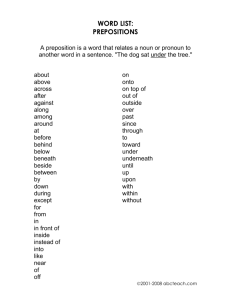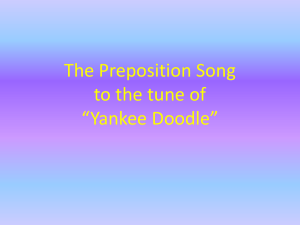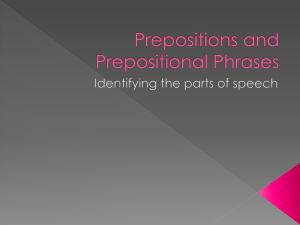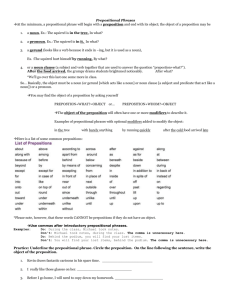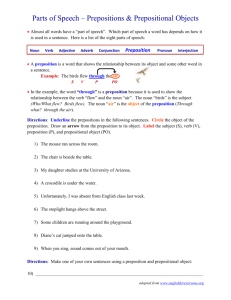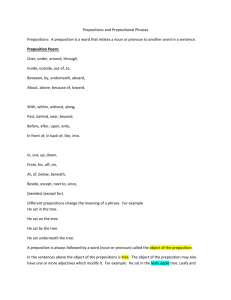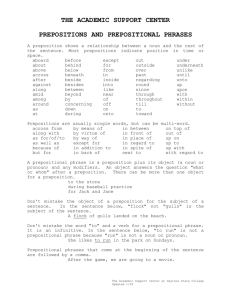A crash course in prepositions
advertisement
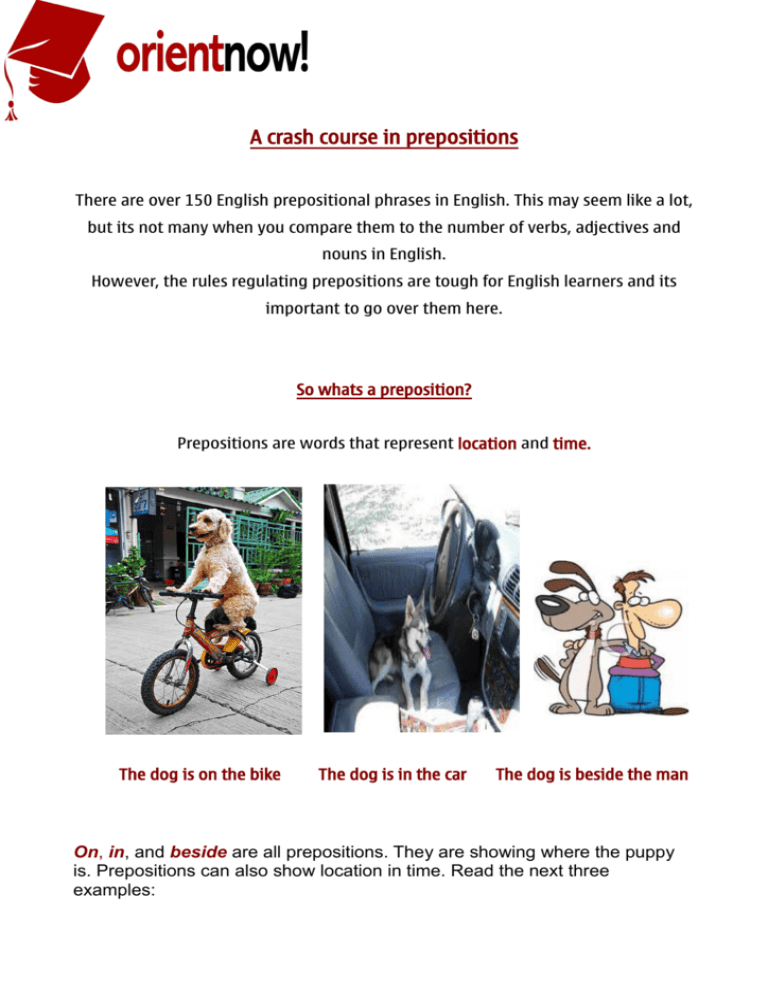
A crash course in prepositions There are over 150 English prepositional phrases in English. This may seem like a lot, but its not many when you compare them to the number of verbs, adjectives and nouns in English. However, the rules regulating prepositions are tough for English learners and its important to go over them here. So whats a preposition? Prepositions are words that represent location and time. The dog is on the bike The dog is in the car The dog is beside the man On, in, and beside are all prepositions. They are showing where the puppy is. Prepositions can also show location in time. Read the next three examples: At dawn, they rode out into the desert. In the summer, I always tell myself to take more free time and enjoy life more. During the lecture, Paul's eyes started closing, and his head crept ever closer to the desk. At dawn, in the summer, and during the lecture all show location in time. Below is a list of prepositions: about concerning onto above despite on top of according to down out across during out of after except outside against except for over along excepting past along with for regarding among from round apart from in since around in addition to through as in back of throughout as for in case of till at in front of to because of in place of toward before inside under behind in spite of underneath below instead of unlike beneath into until beside like up between near upon beyond next up to but* of with by off within by means of on without But... The use of but as a preposition is often debated. Its rarely used as a preposition however when it is, it has the same meaning as except. except—Everyone went to the park but Martin. Making a prepositional phrase Prepositions generally introduce prepositional phrases. Prepositional phrases look like this: P R E P O S I T I O N +O P T I O N A L MODIFIERS +N O U N , PRONOUN, OR GERUND Here are some examples: At the park At= preposition; Park= noun. According to the policeman According to= preposition; the policeman= pronoun. By talking By= preposition; talking= gerund. Under the chair Under= preposition; the= modifier; chair= noun. In the dusty, smokey room In= preposition;the, dusty, smokey= modifiers; room= noun. But these prepositions work a bit differently Some prepositions also function as subordinate conjunctions (See our conjunctions section). These prepositions are after, as, before, since, and until. A subordinate conjunction will have both a subject and a verb following it, forming a subordinate clause. Look at these examples: After they kissed goodbye After = subordinate conjunction;They subjects; kissed = verb. As Peter cracked under pressure. As = subordinate conjunction; Peter= subject; cracked= verb. Before I make this toast Before = subordinate conjunction; I = subject; make= verb. Since we love Grammar so much Since = subordinate conjunction; we = subject; love = verb. Until your Mother comes here Until = subordinate conjunction; your mother = subject; comes= verb. If you find a noun [with or without modifiers] following one of these five prepositions, then all you have is a prepositional phrase. Look at these examples: After the awful English test After = preposition; the, awful, English= modifiers; test = noun. As a good parent As= preposition; a, good = modifiers; parent = noun. Before supper Before = preposition; supper= noun. Since the breakup of their relationship Since = preposition;the = modifier; breakup = noun.
